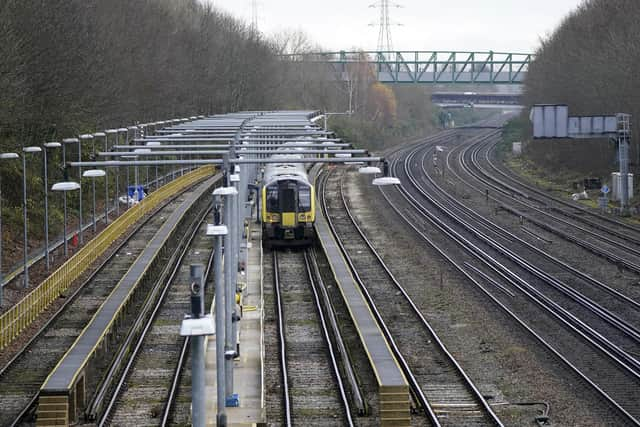How students can ensure they travel home safely this Christmas - Mark Balaam
And whilst the majority of people will make it home without issue, sadly that won’t be the case for all.
Violence encompasses many forms from physical harm to harassment – and much of this can happen on public transport. Indeed, recent statistics from the British Transport Police reveal that more than one in three women have been sexually assaulted on trains while travelling this year.
Advertisement
Hide AdAdvertisement
Hide AdWhile everyone deserves the right to feel safe, unfortunately, that isn’t always the case in today’s society. It should, though, be something we vigorously strive towards. And with hundreds of thousands of people travelling home for Christmas over the next few weeks, we should work together to help keep both ourselves and others safe.


So, what can you do? Planning ahead and taking sensible precautions is key.
While there’s typically only an eight hour window of daylight in the UK during the winter months, try to avoid travelling in the dark, particularly in the evenings. If you have to, make sure to always be aware of your surroundings and have a fully charged communication device, such as a mobile, tablet or smartwatch (or have the means to charge it) with you at all times.
Whether you're waiting at the station or travelling on the train, vigilance is key. Look out for others and be an active bystander if you observe any inappropriate behaviours. This can be anything from unwanted physical contact, to invading personal space, inappropriate comments to persistent staring – anything, essentially, that makes you or others around you feel uncomfortable.
Advertisement
Hide AdAdvertisement
Hide AdWhen we say ‘active bystander’, that doesn’t necessarily mean physically stepping in or verbally intervening. The British Transport Police’s 'Railway Guardian app' is free to download and it allows people to anonymously report crimes or concerns on the rail network. By reporting inappropriate behaviour, you’ll be an active bystander without putting yourself in harm’s way.
It’s also important to let people know your travel plans. A text or phone call to loved ones explaining your travel routes and estimated time of arrival offers reassurance and a relative idea of your commute, helping them to make sure you get to your destination safely.
A more powerful alternative is the use of geo-location, which allows friends and loved ones to keep an eye on your journey from a distance. One of the features of the Railway Guardian app, users can share their real-time location with trusted contacts, enabling them to track their route and reach out to you if plans seem disrupted.
Due to the ongoing rail strikes across the country, it’s important that students plan their journeys well in advance, notify others of their plans and stick to them. By sorting your travel plans ahead of time, you can let others know your intended routes and minimise any disruption to them.
Advertisement
Hide AdAdvertisement
Hide AdUltimately, people need to be vigilant and take care. By following the advice above, we hope all students using public transport to travel home for Christmas this year will do so safely.
Mark Balaam is a White Ribbon ambassador and safeguarding expert. He’s also CEO and founder of safeguarding platform imabi.
Comment Guidelines
National World encourages reader discussion on our stories. User feedback, insights and back-and-forth exchanges add a rich layer of context to reporting. Please review our Community Guidelines before commenting.